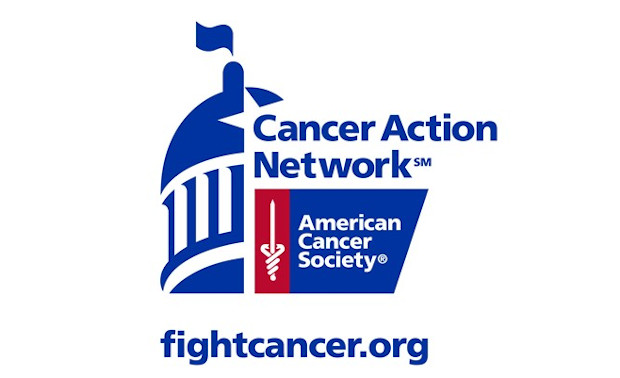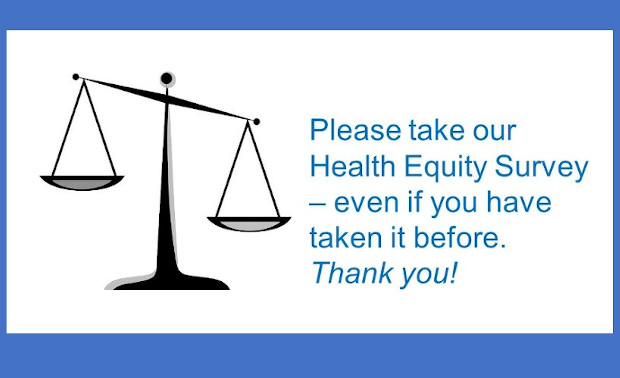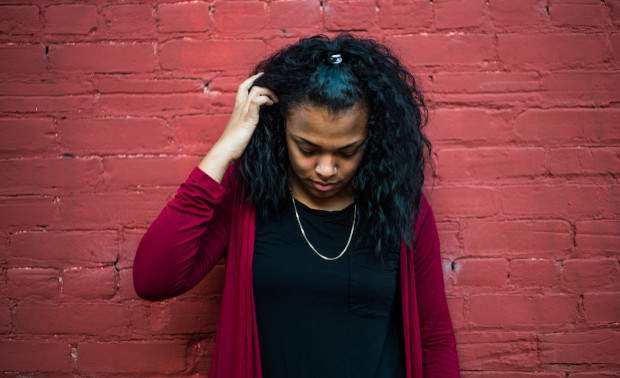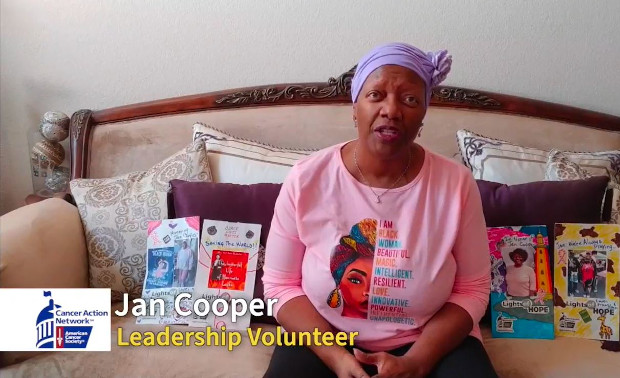
Wednesday, September 30, 2020
ACS CAN: Executive order on pre-existing conditions falls short

#CheckIt4Andretti
Cancer screening is critical for detecting and preventing cancer. Make cancer screening a part of your new normal and schedule your screenings today. #CheckIt4Andretti
Tuesday, September 29, 2020
Monday, September 28, 2020
Relay For Life ELT Rally
Don't miss the Nationwide Relay For Life ELT Rally on Tuesday, September 29th at 5:00pm. See the Facebook event and join live on Facebook at www.facebook.com/RFLELTSupport.
International Day for Universal Access to Information
Today on International Day for Universal Access to Information, we are honored to be able to provide 24-hours a day 7-days a week FREE access to cancer information and support at cancer.org and the American Cancer Society National Cancer Information Center (NCIC) 1 (800) 227-2345 phone line.
Sunday, September 27, 2020
Complete our 2020 Health Equity Survey via the link in this article
All volunteers asked to participate, as one way to help advance our health equity work
The American Cancer Society and ACS CAN work every day to achieve our mission to save lives, celebrate lives, and lead the fight for a world without cancer. To achieve our mission, it is imperative that we fully advance health equity, so that all people have a fair and just opportunity to live a longer, healthier life free from cancer regardless of how much money they make, the color of their skin, their sexual orientation, gender identity, their disability status, or where they live.

To ensure we are strengthening our organization's collective capacity to advance health equity, we are once again this year asking all staff and volunteers to complete a quick health equity survey. This year's survey, which is now open via this survey link through Monday, October 12, will gauge what staff and volunteers know about health equity, what actions they may have taken over the past year to help advance health equity, and what resources they need to increase the integration of health equity into their work.
The survey should only take about 10 minutes to complete, and survey results will be used to help the Society's Health Equity team ensure we are providing our staff and volunteers with the information, materials, and tools they need to be health equity champions and reduce cancer disparities. Though this is the third consecutive year we've fielded this survey, all staff and volunteers are encouraged to complete it even if they have completed it before so that our Health Equity team understands current needs and levels of understanding.
* Shared from MySocietySource.
Saturday, September 26, 2020
Amazon donations top $1 million!
AmazonSmile is now available on mobile devices
With our most recent quarterly donation of $93,596.12, the American Cancer Society has now received more than $1 million in total from the AmazonSmile Foundation.
When shoppers select the Society as their Charity of Choice through the AmazonSmile program, Amazon will donate 0.5% of their eligible purchases to us, at no cost to the shopper. To select the Society, use this link smile.amazon.com/ch/13-1788491.
Amazon recently enabled AmazonSmile on the app, so it’s now easier than ever to benefit the Society. Simply follow these instructions to turn on AmazonSmile and start generating donations from wherever you are shopping all year long.
Don’t forget to choose the American Cancer Society as your charity of choice AND tell your family, friends, and fellow volunteers! Once you've signed up, remember to go to smile.amazon.com, not amazon.com, from your laptop.
ACS has been a beneficiary of the AmazonSmile program since 2014. Here is what we have received each year for five of those seven years, thanks to our supporters:
- 2016: $41,000
- 2017: $63,819
- 2018: $290,401
- 2019: $365,498
- 2020: Q1: $91,475; Q2: $93,596
Friday, September 25, 2020
Wednesday, September 23, 2020
Bi Visibility Day
Today is #BiVisibilityDay! Today we recognize and celebrate bisexual history, the bisexual community and culture, and all the bisexual people in their lives. Learn more about the knowledge gaps among oncologists relating to cancer risk factors affecting the LGBTQ+ community.
Tuesday, September 22, 2020
National Voter Registration Day
Today is #NationalVoterRegistrationDay. The American Cancer Society Cancer Action Network’s “Cancer Votes” is the nation’s leading election program educating the public and candidates about the actions lawmakers should take to make fighting cancer a national priority. Join ACSCan and register to vote today!
Monday, September 21, 2020
Thyroid cancer drives increase in cancer incidence among adolescents and young adults
Cancer mortality rates are highest in non-Hispanic Black AYAs, particularly females
A new ACS report examining cancer in adolescents and young adults (ages 15 to 39) provides updated estimates of the cancer burden in this age group, predicting that 89,500 cases and 9,270 deaths will occur in 2020 in the U.S. The report appears in the American Cancer Society journal CA: A Cancer Journal for Clinicians, and was co-written by ACS researchers Kim Miller, MPH, Rebecca Siegel, MPH, and others.

To watch a slideshow of key findings, visit cancer.org.
The most common types of adolescents and young adults (AYAs) cancers vary substantially by age
AYAs with cancer are frequently grouped with older or younger patient populations and/or presented in aggregate, masking the wide difference in cancer occurrence within this population. To address this issue, ACS investigators also examined cancer incidence, survival, and mortality among AYAs by race/ethnicity and for smaller age groups (15-19, 20-29, and 30-39).
The bar graph above shows the difference in the most commonly diagnosed cancers by age group:
- Ages 15 to 19: The 3 most common types are thyroid cancer, Hodgkin lymphoma, and brain tumors. Teens have a higher proportion of childhood cancers compared to the older age groups.
- Ages 20 to 29: The most common are thyroid cancer, testicular cancer, and melanoma.
- Ages 30 to 39: The most common are breast cancer (in females), thyroid cancer, and melanoma.
Among these cancers, incidence rates are highest in non-Hispanic whites and lowest in Asian/Pacific Islanders (83 vs 54 per 100,000 people) for both sexes. This reflects higher rates in non-Hispanic white AYAs for thyroid cancer, testicular tumors, and melanoma compared to other major racial/ethnic groups. Unlike adults ages 40 and older, however, female breast cancer incidence rates in non-Hispanic Black AYAs are 14% higher than those in non-Hispanic white AYAs (25.9 vs 22.3 per 100,000 population).
The authors also note that despite patterns in overall incidence, cancer mortality rates are highest in non-Hispanic Black AYAs, particularly females (12.6 per 100,000 vs 9.2 in non-Hispanic white persons), reflecting substantial survival disparities compared to those who are non-Hispanic white. The largest 5-year cancer-specific survival disparities occur among those who are non-Hispanic Black compared with non-Hispanic whites for acute lymphocytic leukemia (57% vs 71%, respectively) and female breast cancer (78% vs 89%, respectively).
Thyroid cancer diagnoses have driven the overall increase in incidence rates—especially for women
Overall, the researchers found that cancer incidence rates increased across all 3 age groups during the past decade. Notably, thyroid cancer was the only common type among each age group’s top 3 types of cancer. Thyroid cancer incidence rates among women in their 20s are 5 times greater than those in men (15 women vs 3 men per 100,000 people).
By age group, the cancer incidence rate in AYAs increased during the most recent decade (2007-2016) overall but showed signs of stabilizing among men in their 20s. The rise is largely driven by thyroid cancer incidence rates, which rose by approximately 3% annually among those aged 20 to 39 and 4% among those aged 15 to 19 years. Incidence increased for several cancers linked to obesity, including kidney (3% across all age groups), uterine corpus (3% in group aged 20-39 years), and colorectum (0.9%-1.5% in the group aged 20-39 years).
In contrast to incidence, cancer mortality rates among AYAs for all cancers combined declined in the past decade (2008 through 2017) by 1% across sex and age groups except females aged 30 to 39, among whom rates remained stable due to a flattening of declines in breast cancer mortality. Mirroring incidence, mortality rates increased during the most recent 10 data years (2008-2017) for colorectal and uterine corpus cancers.
Other highlights from the report include:
- Cancer incidence rates for all types combined are similar for males and females ages 15 to 19. However, 20- to 29-year-old women have rates that are 30% higher than for men of the same age (55 women vs 42 men per 100,000 people). The incidence rate is nearly double in 30- to 39-year-olds (161 women vs 84 men per 100,000 people.) These differences are mainly because of the higher incidence of breast cancer, melanoma, and thyroid cancer in women.
- Adolescents (aged 15-19 years) are more likely to be diagnosed with cancers associated with childhood, such as Hodgkin lymphoma, while those aged 20 to 39 years are more likely to be diagnosed with adult cancers, such as breast.
- Leukemia continues to be the leading cause of cancer death in ages 15 to 29 years. Among ages 30-39 years, breast (women) and colorectal (men) cancers are the leading cancer causes of death.
- Melanoma incidence rates during 2007-2016 rapidly declined in ages 15 to 29 (4%-6% annually, on average). However, among ages 30-39 years, rates declined only slightly among men and remained flat among women.
- The most commonly diagnosed cancer for males aged 20 to 39 is testicular cancer. The incidence rates per 100,000 people are: 13 for non-Hispanic white men;10 for both Hispanic men and American Indians/Alaskan Natives;2.4 for non-Hispanic Black men.
- Overall 5-year relative survival in AYAs for all cancers combined (83%-86% across age groups) is similar to that in children (84%), but masks lower survival for several cancer types, such as acute lymphocytic leukemia (ALL; 60% vs 91%, respectively).
The report notes an increasing body of evidence that tumors in AYAs are molecularly distinct from those in younger or older populations, suggesting differences in etiology and in treatment options. In addition, studies have shown that compared to childhood cancer survivors, AYAs have a higher risk of progression and death from their original cancer. Compared to older cancer patients, AYAs have a higher risk of long-term and late effects including infertility, sexual dysfunction, cardiovascular disease, and other future cancers. However, further research in these areas is needed.
The authors say that progress in reducing cancer morbidity and mortality among AYAs could be improved with more equitable access to health care, as AYAs are more likely than other age groups in the U.S. to be uninsured. Increased clinical trial enrollment, expanded research, and improved awareness among clinicians and patients of early symptoms and signs of cancer could also accelerate progress.
“Although there has been rapid progress in the scientific understanding of cancer in AYAs over the last decade, several research gaps in etiology, basic biology, treatment, and survivorship remain,” write the authors. “AYAs diagnosed with cancer also continue to face challenges in health care access during early life transitions, which can negatively impact treatment.”
*Scared from MySocietySource.
#BEARHUGS
Cancer doesn’t care which child it attacks. Every couple of minutes, a parent learns it’s theirs. Childhood cancer is the second leading cause of death in children ages 1 to 14. Parents and their children need information, support and, most of all, hope. Help provide warm #BearHugs to a child in need today at cancer.org/bearhugs. Not only are you providing hope, the funds raised support our childhood cancer research, services, awareness, and prevention work.
Sunday, September 20, 2020
ACS CAN holds its first virtual Leadership Summit and Lobby Day
On Sept. 15, more than 700 cancer patients, survivors, and their loved ones from all 50 states dialed into calls and logged onto virtual meetings to ask members of Congress to make the fight against cancer a national priority as part of the American Cancer Society Cancer Action Network’s (ACS CAN) Leadership Summit and Lobby Day. The advocates represented nearly every congressional district.
Due to the coronavirus pandemic, this is the first time ACS CAN hosted its annual Leadership Summit and Lobby Day virtually. It followed the Sept. 12 Lights of Hope Across America virtual event, which replaced the annual Lights of Hope ceremony that usually takes place on the steps of the Lincoln Memorial in Washington, DC. The Facebook livestream reached an estimated 27,000 people and to date has been viewed more than 16,000 times. Watch a replay here.

The hour-long livestream event featured dozens of stunning Lights of Hope displays in every location you could think of – neighborhood parks, front porches, backyards, driveways, windowsills and even iconic landmarks like the Golden Gate Bridge and Times Square. In all, there were 52,000 decorated bags and the event raised more than $720,000. Bristol Myers Squibb was the presenting sponsor.
"I was so honored to represent ACS CAN and share my display from the steps of the Lincoln Memorial, a location of such significant meaning to our country and to this event," said ACS CAN President Lisa Lacasse.
Here are some key events that took place during the week:
Sunday, September 13
ACS CAN recognized hardworking staff and volunteers for their outstanding work in cancer advocacy. See the full list of 2020 advocacy award recipients.
Tuesday, September 15
ACS CAN’s Lobby Day began with a kick-off event featuring NCAA Division I basketball coaches Jay Wright of Villanova University and Bill Self of the University of Kansas. The coaches rallied advocates before their virtual meetings and calls with lawmakers. The coaches are members of Coaches vs. Cancer®, a nationwide collaboration between the American Cancer Society and the National Association of Basketball Coaches™.
During this year’s Lobby Day, advocates asked their lawmakers to:
- Increase funding for cancer research and prevention programs with at least $44.7 billion (a $3 billion increase) for the National Institutes of Health (NIH) in Fiscal Year 2021, including $6.9 billion for cancer research at the National Cancer Institute (NCI), and $559 million for the Centers of Disease Control and Prevention’s (CDC) cancer programs
- Advance the Henrietta Lacks Enhancing Cancer Research Act. Named after the Black American woman from Baltimore who died of cervical cancer and whose cells cultivated during her treatment have been used to develop some of the most important cancer treatments, the Act would help focus on identifying and removing barriers that prevent underrepresented groups from participating in cancer clinical trials.
ACS CAN also honored a select group of lawmakers and others who have made exemplary contributions to fight against cancer. The National Distinguished Advocacy Award, ACS CAN’s most prestigious honor, was presented to U.S. Representatives Brian Fitzpatrick (R-Penn.) and Lisa Blunt Rochester (D-Del.), as well as Massachusetts State Senator John Keenan and State Representative Danielle Gregoire, and Atlanta City Councilmember Matt Westmoreland. ACS CAN’s Judicial Advocacy Initiative award, which recognizes attorneys who generously donate their services to the cancer fight, was given to Jeffrey B. Dubner of the Democracy Forward Foundation.
The day concluded with a comedy night for the annual CAN Opener fundraiser. Throughout Leadership Summit and Lobby Day, ACS CAN hosted its annual silent auction online. Proceeds from both the CAN Opener and silent auction help ACS CAN further its advocacy work.
Media coverage
Media coverage for both Lights of Hope and Leadership Summit and Lobby Day has maintained a steady drumbeat over the last few months, ramping up throughout the past week leading up to the events. Regional media advocacy staff have secured more than 100 media clips in outlets across the county, and we expect to see additional letters to the editor and post-event articles appear in volunteers’ local media outlets with reports of their successful week.
*Shared from MySocietySource.
Saturday, September 19, 2020
Staff and volunteer leaders meet with key African American stakeholders
One of the immediate outcomes from the meeting was that the group decided to stay together as an advisory group and will meet regularly.
On Sept. 9, our Executive Team and three Board members met virtually with the leaders of 13 national African American organizations to identify ways the Society can contribute to addressing the cancer burden among African American people and have more meaningful engagement with the Black community in the fight against cancer.
While ACS has had a longstanding commitment to diversity, inclusion, and equity, our Board and Executive Team are committed to doing more. The primary purpose of this important call was for ACS leaders to listen, as key African American leaders shared opportunities for engaging Black communities in the fight against cancer. ACS provided a diversity and inclusion pre-read document and an overview of our current efforts to reduce disparities, increase health equity, and focus on health equity-related advocacy.
*Shared from MySocietySource.
Friday, September 18, 2020
San Francisco Discovery Gala
You’re invited to us at the 2020 San Francisco Discovery Gala happening at 7:00pm on Saturday, September 26th. This digital event is presented by Cisco and will be an evening of hope, featuring a musical performance by Pia Toscano! As the American Cancer Society continues our work in the presence of COVID-19, your support is more important that ever. To attend the Gala and support cancer patients and frontline healthcare workers, follow the American Cancer Society San Francisco Gala page and visit www.sfdiscoverygala.org.























